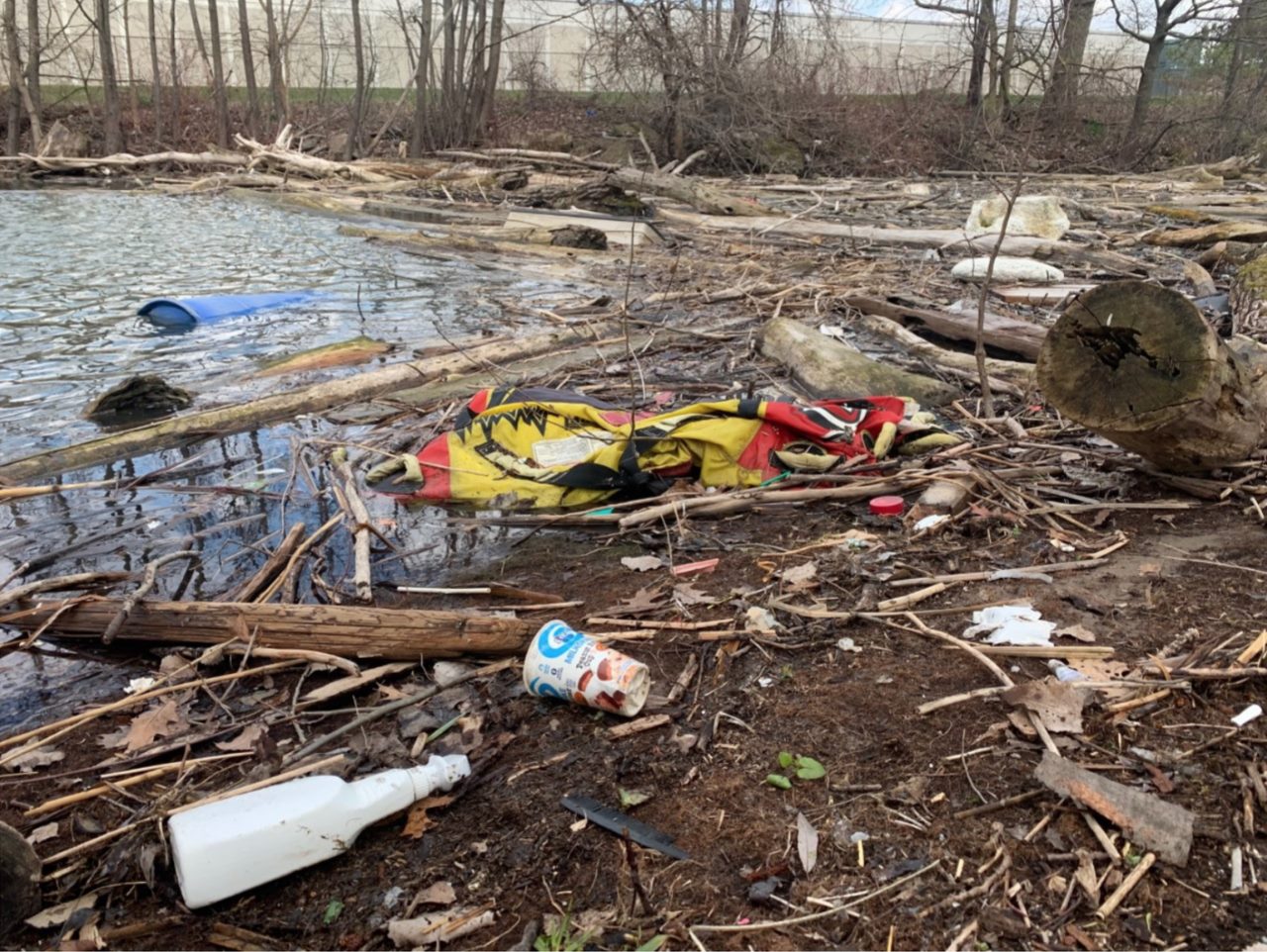This past Saturday, we participated in a lower west side cleanup with Buffalo Niagara Waterkeeper. In only 4 blocks of Jersey Street, we had accumulated 55lbs of trash. The days of seeing trash and assuming that because someone else dropped it, it’s their problem are over. Trash is all of our problem. It will make its way into the storm sewers and into our rivers, ruining the water for all of us.
Persuasion tactics say that environments void of litter discourage more litter, and environments with litter, encourage more. Our dirty streets are all of our problem, so if you want them clean, we all have to clean them up together first.
Buffalo Niagara Waterkeeper is doing far more than cleaning up our streets, creeks, rivers and lakes. They are our the stewards of our community’s health. The grant below, and their designated leadership within the charge is a very big deal, but it still takes the support of us all to be successful.
–
Buffalo Niagara Waterkeeper has received a federal grant from the Environmental Protection Agency’s Great Lakes Restoration Initiative for nearly $300,000 to lead an effort across the Great Lakes Basin for coordinated cleanups through 2022. The effort will help keep drinking water resources safe and protect habitats throughout the Great Lakes Basin.
Buffalo Niagara Waterkeeper and its partners, Seneca Park Zoo, Friends of the Detroit River, The Watershed Center of Grand Traverse Bay and Milwaukee Riverkeeper, will utilize the federal funding to coordinate trash clean up events and awareness campaigns in their five respective Great Lakes communities in 2021 and 2022, with the goal of removing 68 metric tons of trash from 17,120 acres by the end of 2022.
Litter pollution in the Great Lakes basin is increasing, and is a threat to many communities’ drinking water quality and the habitats of native fish and wildlife species. Therefore, in addition to the cleanups over the next two years, the coalition hopes to add 10 additional Great Lakes communities to the collective effort, dubbed “The Great Lakes Cleanup,” by 2025.
“New York is a Great Lakes state, and protection of our globally significant resources often falls on the shoulders of frontline communities and organizations,” said Buffalo Niagara Waterkeeper Executive Director Jill Jedlicka. “Buffalo Niagara Waterkeeper is honored to lead this effort, and we are grateful for EPA’s support for this multi-state, multi-lake collaborative effort. We are thrilled to be able to work with our fellow Waterkeeper organizations around the Great Lakes, who are some of the most effective water advocates in the world. Our collective action and cooperation is intended to benefit the health and future of the millions of people and species that call the Great Lakes Basin their home and we can’t wait to mobilize thousands more citizens and volunteers in these clean-up efforts.”
“EPA’s new, innovative Trash-Free Great Lakes program underscores the administration’s commitment to protecting and preserving these binational treasures,” said EPA Region 5 Administrator Kurt Thiede. “EPA is proud to support Buffalo Niagara Waterkeeper and all of our partners through this inaugural round of grants as we work to address the issue of litter and debris in the Great Lakes.”
Congressman Brian Higgins (NY-26), a member of the Congressional Great Lakes Task Force, said, “Many of our most critical environmental success stories have been driven by community activism. Buffalo Niagara Waterkeeper has a long tradition of success and service in restoring and protecting Western New York’s waterways. This federal investment supports a great coordinated effort to safeguard and cleanup the largest source of fresh water on the planet.”
“We are excited to partner with our other Great Lakes Waterkeepers to address the real problem of trash and single-use plastics that threaten the water quality, wildlife, and aesthetic beauty of our Great Lakes and its tributaries,” said Riverkeeper Cheryl Nenn of Milwaukee Riverkeeper. “Working together we can raise awareness of simple things that people can do to reduce trash at the source, as well as foster an army of Great Lakes volunteers to clean up trash before it can enter into the Great Lakes, which is the source of drinking water for 40 million Americans and Canadians.”
“As an organization that has been involved in clean-ups for over 20 years, Friends of the Detroit River has witnessed firsthand the value these events have had in uniting volunteers, fostering relationships, creating stewards for our river, and the positive impacts they have had on our natural resources and the communities that surround them,” said Friends of the Detroit River Chairman David Howell. “Our organization is thrilled to expand our efforts in partnership with this grant opportunity to reach the broader Great Lakes region, because we all share and benefit from this interconnected system.”
“We are thrilled to collaborate with organization across the Great Lakes basin to pick up litter in and around our Great Lakes. In the Grand Traverse Bay watershed, near-record high water levels have resulted in litter and debris scattered across our beaches and near-shore waters,” said Grand Traverse Baykeeper Heather Smith. “The Trash Free Water grant will give us the opportunity to remove some of this larger debris, such as patio furniture and dock sections, that have been scattered by high water and wave action.”
“The Seneca Park Zoo Society is extremely proud to be asked to take part in this effort for the city of Rochester” said Director of Programming and Conservation Action for Seneca Park Zoo Society Tom Snyder. “Working together with these great cities and organizations will help build sustainability for the benefit of everybody that lives near any of the Great Lakes.”
Buffalo Niagara Waterkeeper is a community-based non-profit organization that protects and restores our waters and surrounding ecosystems for the benefit of current and future generations. For over 30 years, Buffalo Niagara Waterkeeper has been the guardian of Western New York’s fresh water, protecting clean water, restoring the health of ecosystems, connecting people to the water and inspiring economic growth and community engagement. For more information, please visit www.bnwaterkeeper.org.




